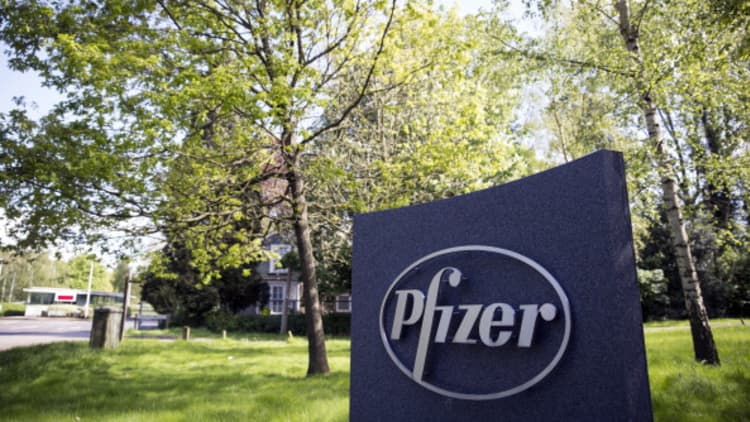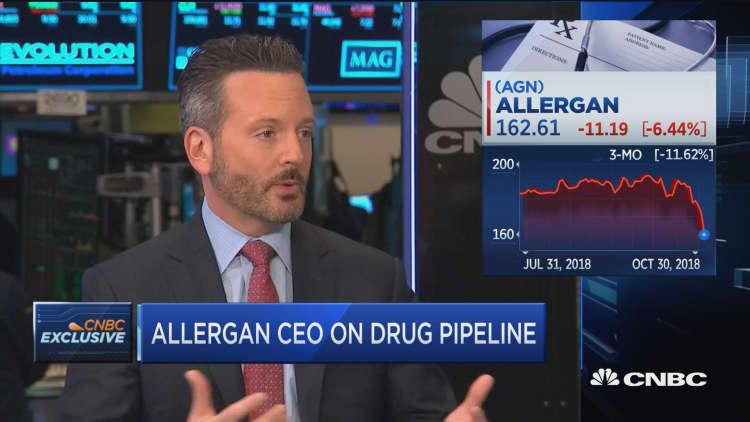
Last quarter, Pfizer Chief Ian Read was upbeat on the Trump administration's plan to lower drug prices, even after a Trump tweet that led to his company deferring planned price increases.
Now, after a set of proposals counter to the industry's interests leading into the midterm elections, Read's support sounds as if it may be waning. One tenet in particular — a plan announced last week to tie prices of certain drugs paid for by Medicare to an international average — has Read and other pharma leaders speaking out.
"I don't believe that the proposed rule in reference pricing to price-controlled markets as a way of setting prices in the U.S. is good for innovation, patients or our industrial base," Read told CNBC in a telephone interview Tuesday.
Allergan CEO Brent Saunders was similarly against the plan in an interview on CNBC's "Squawk on the Street" Tuesday, calling it a "dangerous proposition" and a "slippery slope."
The administration announced its Blueprint to Lower Drug Prices in May, and was generally met with support from the drug industry.
In particular, pharmaceutical companies like Pfizer lauded the administration's plan to target drug rebates. Those are the discounts drugmakers give to middlemen such as pharmacy benefit managers, often in exchange for more favorable insurance coverage for their medicines. Drug companies argue the rebating system helps drive the price of medicines artificially higher.
When Pfizer decided to defer its planned price hikes earlier this year, it said the current prices would remain until the end of the year, or until the blueprint goes into effect. Under Read's definition, the latter doesn't appear likely before year-end.
"We don't think the blueprint could be implemented other than seeing a radical change in the pricing model by insuring that rebates get to the patient," Read told CNBC. "I feel that they've been less rapid than I'd have liked on this discount issue."
Read said he hopes the administration will revise its plan to tie drug prices covered by Medicare Part B to an international average that's much lower than what the U.S. currently pays. Medicare is the government insurer for the elderly and disabled, and Part B drugs are those administered in the hospital or doctor's office, rather than being dispensed at a pharmacy.
Read did say he is "quite positive about increasing competition in the Part B space," another aspect of the administration's recent proposal.
Industry experts have noted the timing of the Trump administration's most recent moves seem orchestrated around the midterm elections. Drug pricing is a popular campaign issue on both sides of the aisle.
Read, who hands the Pfizer CEO role to Chief Operating Officer Albert Bourla in January, takes a longer-term view.
"I've been in the industry 41 years," he said, "and pricing has always been an issue."
WATCH: Allergan CEO on Trump's drug pricing policy


